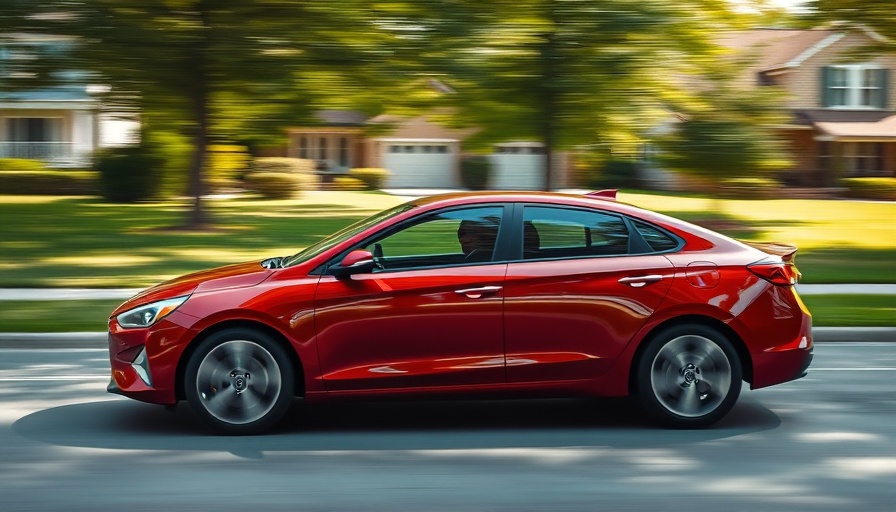
The Shift to Range-Extended Electric: A Game Changer for Ram
In a surprising twist in the rapidly evolving automotive landscape, Ram has decided to pivot away from its full-size battery electric pickup plans, instead favoring the range-extended Ram 1500 REV. This move, prompted by cooling demand for fully electric trucks, emphasizes Ram's commitment to practicality in the real world while still embracing electrification. Instead of relying solely on battery power, the Ram 1500 REV combines battery propulsion with a gasoline engine to ensure extended range capability—an appealing prospect for truck enthusiasts and everyday drivers alike.
Understanding Range-Extended Vehicles
For those unfamiliar, range-extended electric vehicles allow drivers to operate primarily on battery power but provide the added assurance of a combustion engine to generate electricity when needed. This model resolves two prominent concerns for truck buyers: towing capabilities and overall range. As Ram’s leadership shifts their focus, they highlight the importance of maintaining practical parameters for truck users who may traditionally rely on gas-powered vehicles.
Why This Matters for Truck Buyers
Market Demand and Changing Consumer Preferences
The decision to scrap a fully electric pickup aligns with a broader trend in the automotive industry, where sales of all-electric trucks have not met initial predictions. Ram's pivot reflects the realities of consumer behavior and economic factors impacting the industry, such as the rising costs of battery production and the evolving landscape of charging infrastructure.
Contextualizing the REVs Transition
While many in the industry were anticipating a robust electric vehicle era, factors such as battery technology limitations and infrastructure gaps have dampened enthusiasm within the market. Ram's choice to focus on the range-extended variant rather than a fully electric model is a strategic response to these challenges. It mirrors similar decisions from other manufacturers who face market pressures and shifting consumer preferences. Industry leaders are beginning to realize that practicality may trump novelty in this segment.
Framework of the New Ram 1500 REV
By adopting the REV nameplate for its range-extended truck, Ram reinforces its branding while potentially enhancing sales. The truck will maintain popular attributes associated with the Ram brand, such as powerful towing capabilities and reliable payload capacity, while also positioning itself as a forward-thinking option in the ever-competitive half-ton truck market. The 1500 REV aims to redefine what buyers can expect from a pickup by seamlessly integrating electric and traditional propulsion methods.
The Importance of Branding and Consumer Perception
Amidst the transitional phase, the name 'REV' could evoke familiarity and loyalty while representing a commitment to hybrid technology rather than losing face in the electric vehicle race. Ram has experienced confusion with earlier branding and product announcements, and this rebranding seeks to create clarity in the marketplace. The company intends for the REV to set benchmarks in the full-size pickup category, which could affect consumer loyalty and brand perception moving forward.
Looking Ahead: What This Means for the Future of Trucks
The decision to focus on the Ram 1500 REV may set a precedent for how automakers respond to market challenges moving forward. As competition heats up in the pickup segment, the RV model could provide a strategic advantage, particularly among consumer groups that are not yet ready to fully embrace battery-electric vehicles. It also underscores a potential trend where hybrid technologies hold significant weight in a transitional automotive environment.
Stay informed and updated on the latest developments in the automotive industry, especially in EV news and market trends that could shape your next vehicle purchase!
 Add Row
Add Row  Add
Add 




Write A Comment